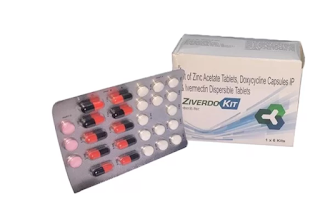Can Benoquin Cream Help in Hyperpigmentation?
Hyperpigmentation, characterized by darkened patches of skin, is a common dermatological concern that many individuals seek to address. Benoquin cream, also known as Monobenzone, has garnered attention for its potential role in treating certain pigmentation disorders. In this blog, we will explore the key aspects of Benoquin cream and its effectiveness in managing hyperpigmentation.
Understanding Benoquin Cream:
What is Benoquin Cream?
Benoquin is a depigmenting agent that contains Monobenzone as its active ingredient. Monobenzone works by decreasing melanin production in the skin, leading to skin lightening.
How Does Benoquin Cream Work?
Benoquin cream acts on melanocytes, the cells responsible for melanin production. By inhibiting melanin synthesis, Benoquin helps lighten the skin, making it an option for individuals dealing with hyperpigmentation issues.
Can Benoquin Cream be Used for Hyperpigmentation?
Treatment of Vitiligo:
Benoquin cream is primarily known for its use in treating vitiligo, a skin condition characterized by depigmented patches. It is often prescribed to individuals with vitiligo to even out the skin tone.
Hyperpigmentation Management:
While Benoquin cream is not typically prescribed for general hyperpigmentation issues (such as those caused by sun damage or hormonal changes), some individuals and dermatologists may explore its use in specific cases.
Important Considerations:
Consultation with a Dermatologist:
Before considering Benoquin cream for hyperpigmentation, it is crucial to consult with a dermatologist. They can evaluate the underlying cause of your hyperpigmentation and determine whether Benoquin is an appropriate treatment option.
Potential Side Effects:
Benoquin cream may have side effects, including irritation, redness, and uneven skin lightening. Understanding the potential risks is essential for making an informed decision.
Skin Sensitivity:
Individuals with sensitive skin may need to exercise caution when using Benoquin cream. Patch testing is often recommended to assess tolerance and minimize adverse reactions.
Conclusion:
In conclusion, while Benoquin cream has demonstrated efficacy in treating vitiligo, its role in managing general hyperpigmentation is less established. Consulting with a dermatologist is paramount to ensure the appropriate diagnosis and treatment plan for your specific condition. They can guide you on the best course of action, considering the cause and extent of your hyperpigmentation, and discuss alternative treatments if Benoquin is not deemed suitable. Always prioritize professional advice to achieve the safest and most effective results for your skin.
.jpg)


Comments
Post a Comment